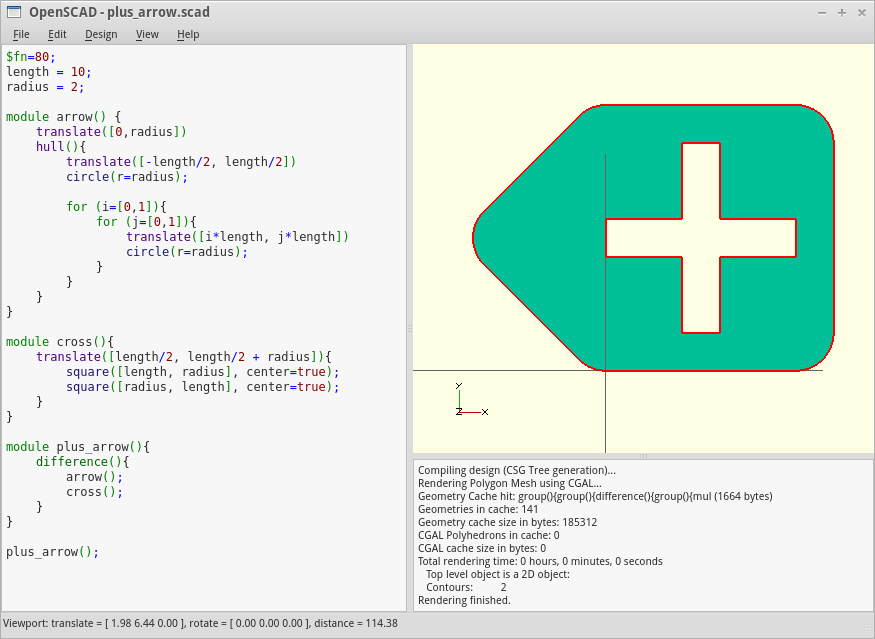- From: Felipe Sanches <juca@members.fsf.org>
- Date: Thu, 24 Jul 2014 17:57:35 -0300
- To: SVG WG <www-svg@w3.org>
- Message-ID: <CAK6XL6C8rvqUvONFSdnhP6VQVAXXJDo+7ozHPMN1AjX1i2x62Q@mail.gmail.com>
Hello,
I've been working with the OpenSCAD tool [http://www.openscad.org] for
generating both 3d models but also 2d vectors. It is a very nice tool and
sometimes I feel it is easier to write a tiny script in OpenSCAD and export
it as SVG instead of directly drawing the shapes in Inkscape.
I have been wondering about the possibility of the SVG standard
incorporating certain features that we can see in OpenSCAD. One such
feature is the generation of convex hull polygons.
Please consider this snippet of OpenSCAD scripting (the resulting shape is
in the attached image):
length = 10;
radius = 2;
module arrow() {
translate([0,radius])
hull(){
translate([-length/2, length/2])
circle(r=radius);
for (i=[0,1]){
for (j=[0,1]){
translate([i*length, j*length])
circle(r=radius);
}
}
}
}
module cross(){
translate([length/2, length/2 + radius]){
square([length, radius], center=true);
square([radius, length], center=true);
}
}
module plus_arrow(){
difference(){
arrow();
cross();
}
}
plus_arrow();
It would be nice to be able to draw a few circles and apply a convex hull
operator to them. So, my proposed SVG feature would represent the arrow()
with something like:
<svg>
<hull>
<circle cx="0" cy="1" r="2" />
<circle cx="0" cy="11" r="2" />
<circle cx="10" cy="1" r="2" />
<circle cx="10" cy="11" r="2" />
<circle cx="-5" cy="6" r="2" />
<hull/>
</svg>
happy hacking,
Felipe "Juca" Sanches
PS:
If you are really going to run this script yourself, beware that I ommitted
an OpenSCAD detail:
$fn=80; //resolution of segmentation to use when using a polygon to
represent a curved shape
Attachments
- image/png attachment: OpenSCAD_-_plus_arrow.png

Received on Thursday, 24 July 2014 20:58:03 UTC